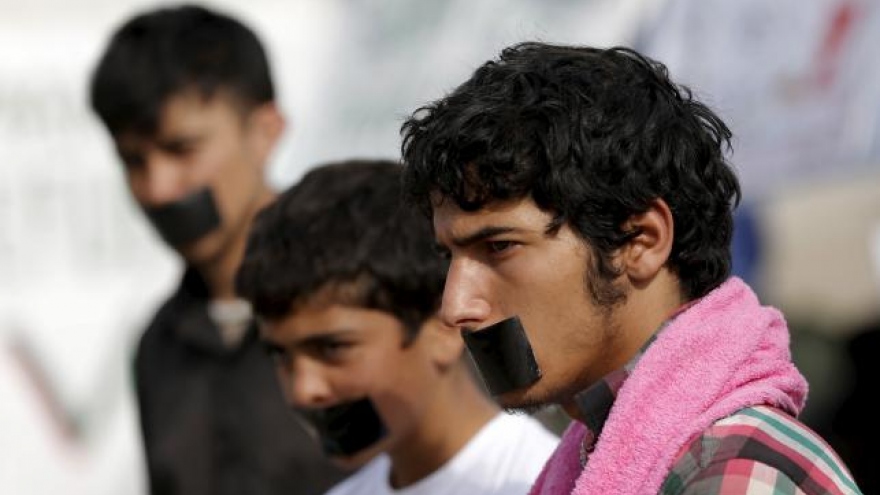Merkel's Turkey visit aims to soothe tensions on EU migrant deal
German Chancellor Angela Merkel will try to soothe tensions over a deal meant to stem the flow of migrants to Europe when she visits Turkey this weekend.
The pact, which came into force three weeks ago, aims to help end the chaotic arrival of migrants and refugees on the Greek islands, many fleeing war and poverty in the Middle East and Africa. More than one million reached Europe last year.
The deal initially slowed the number of arrivals to Greece sharply, but boats have been coming again with about 150 people a day, the International Organization for Migration said.
Merkel and European Council President Donald Tusk will go to Gaziantep near the Syrian border on April 23, where they are due to visit a refugee camp and meet Prime Minister Ahmet Davutoglu.
There is much at stake for both sides. Merkel lobbied skeptical European partners to back the deal, under which Turkey agreed to take back migrants who cross the Aegean Sea illegally, and is under political pressure at home to show progress.
 |
| German Chancellor Angela Merkel gestures during a joint news conference with Turkish Prime Minister Ahmet Davutoglu in Ankara, Turkey February 8, 2016. |
"Turkey wants support in easing the refugee burden - both financial support and in terms of numbers. And they want visa liberalization. We have other interests," a Merkel aide said.
"Ultimately it will depend on both sides fulfilling the criteria they need to. If that doesn't happen the deal won't work."
Rights groups have questioned the legality of the deal, which hinges on Turkey being a safe country of asylum. Amnesty International says Turkey has illegally returned Syrians to their war-torn homeland, a charge Ankara denies.
Under the deal, Ankara gets more EU funding for refugees living on its soil and the revival of long-stalled EU accession talks, as well as the quicker visa liberalization, the main prize in the eyes of many Turks.
Brussels aims to propose waiving visas for Turks on May 4 but that is strongly opposed by some EU member states. Ankara now meets just under than half of the 72 conditions for visa-free access.
"This is clearly shaping up to become a problem. We are talking about some criteria, while they seem to think they in fact already got visa-free travel," said one Brussels diplomat.


